Icons are narrative jewellery, pieces capable of telling exceptional stories through precious and unforgettable details. What we are presenting you with here are jewels that have innovated languages, styles, meanings, materials and techniques, like etruscan granulation, roman micro-mosaic and gold leaf. Masterpieces from the past for understanding the present and designing the future.
Curated By Ida Caruso
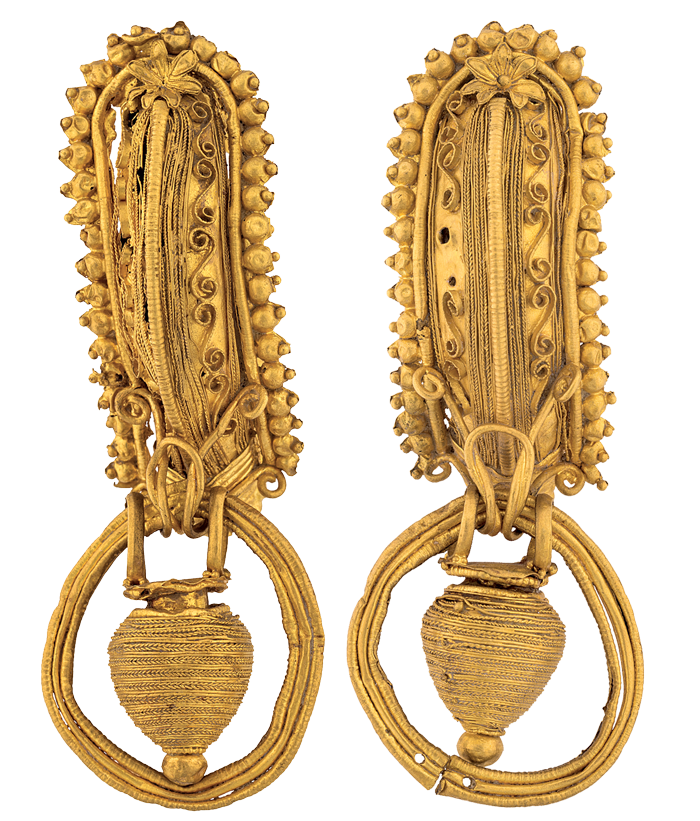
Coppia di orecchini
gold, filigree
height 5.4 cm
Rome, Museo Nazionale Etrusco di Villa Giulia, Castellani collection
This type of tube earrings with charms is quite rare in the repertoire of Etruscan-Lazio goldsmithing, found only in a few locations in northern Etruria. These specimens, from Chiusi, and dating from the late 4th and early 3rd century BC, are decorated in a particularly elaborate and accurate way compared to other similar earrings.
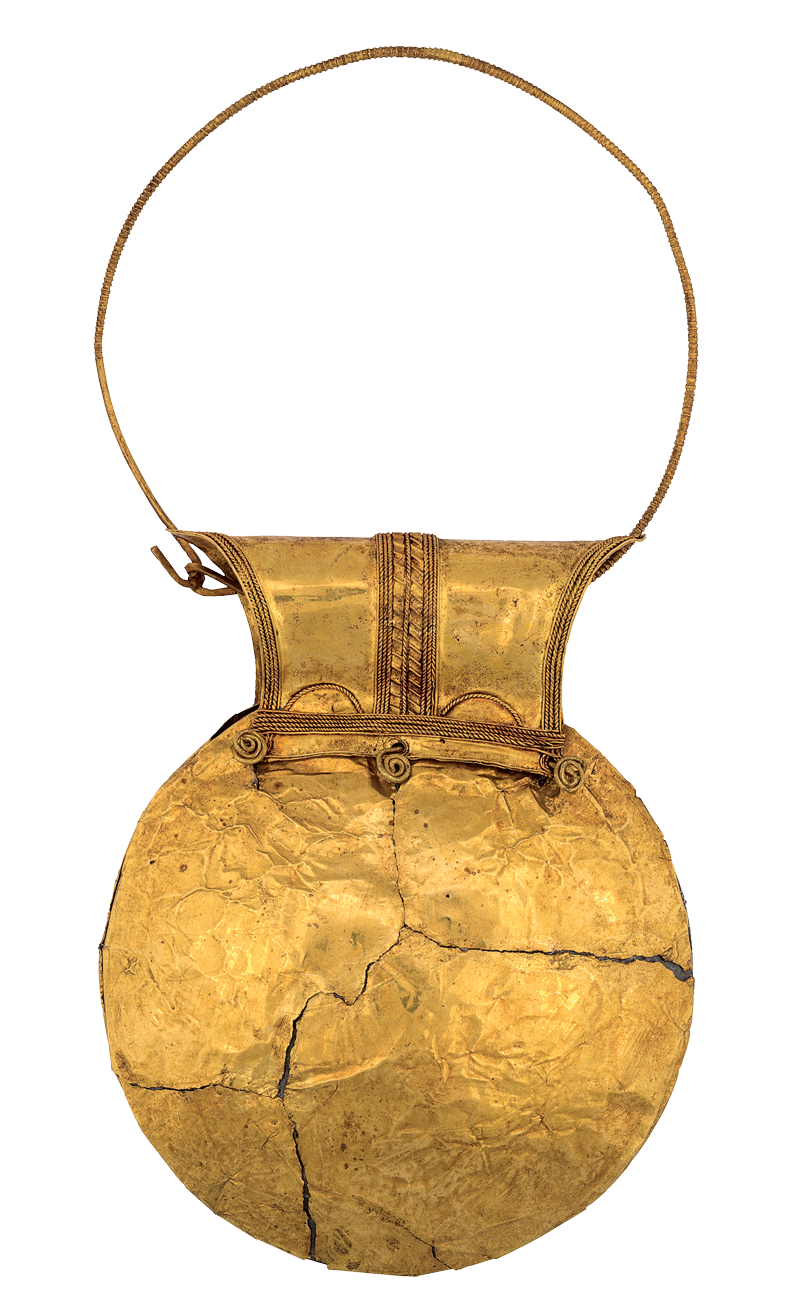
Bulla
gold, filigree
height 9 cm
Rome, Museo Nazionale Etrusco di Villa Giulia, Castellani collection
This is an object that has its origins in Etruscan culture, but which was immediately adopted by the Romans. First used as an amulet against supernatural forces, it later became a necklace for both boys and girls. Made of thin gold foil with a fine filigree decoration.

Bracciale con monete
gold
length 20.3 cm
Rome, Museo Nazionale Etrusco di Villa Giulia, Castellani collection
A beautiful, precious and innovative example of the fashion for coin jewellery. Along this bracelet, gold coins from the Roman Empire alternate with circular, smooth discs that harmoniously repeat the dominant motif of the curved line.
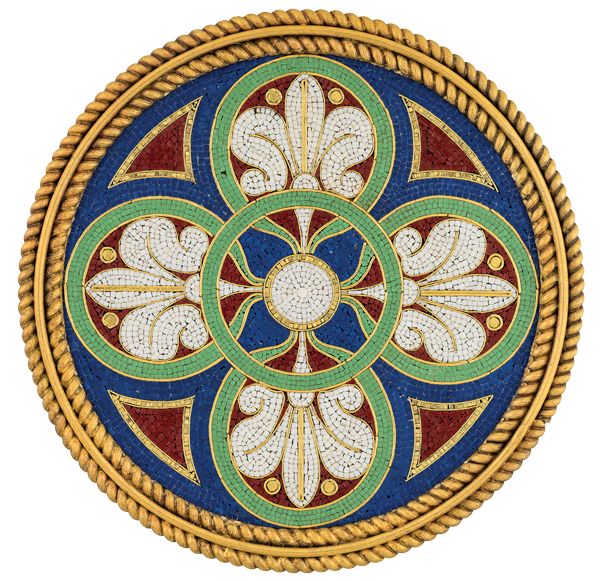
Spilla con micromosaico
Second half of the 19th century
gold, vitreous paste
ø 4.2 cm
Rome, Museo Nazionale Etrusco di Villa Giulia, Castellani collection
This brooch is extremely elegant in the simplicity of its micromosaic decoration, which is inspired by the Byzantine style of the great Roman and eastern basilicas. The theme of
the rose, which fits into a slim corded frame is enriched by the variety of coloured mosaic tiles.
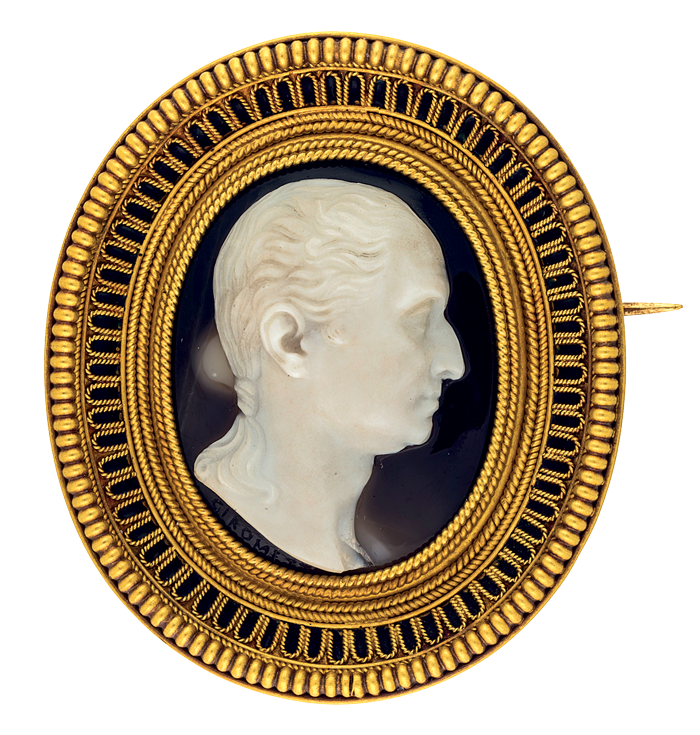
Spilla con cammeo
Second half of the 19th century
gold, engraved sardonyx
height 4 cm; width 3.5 cm
Rome, Museo Nazionale Etrusco di Villa Giulia, Castellani collection
A sardonyx cameo is set within a triple frame, a rare portrait of President George Washington. The piece is signed by 19th-century engraver Giuseppe Girometti
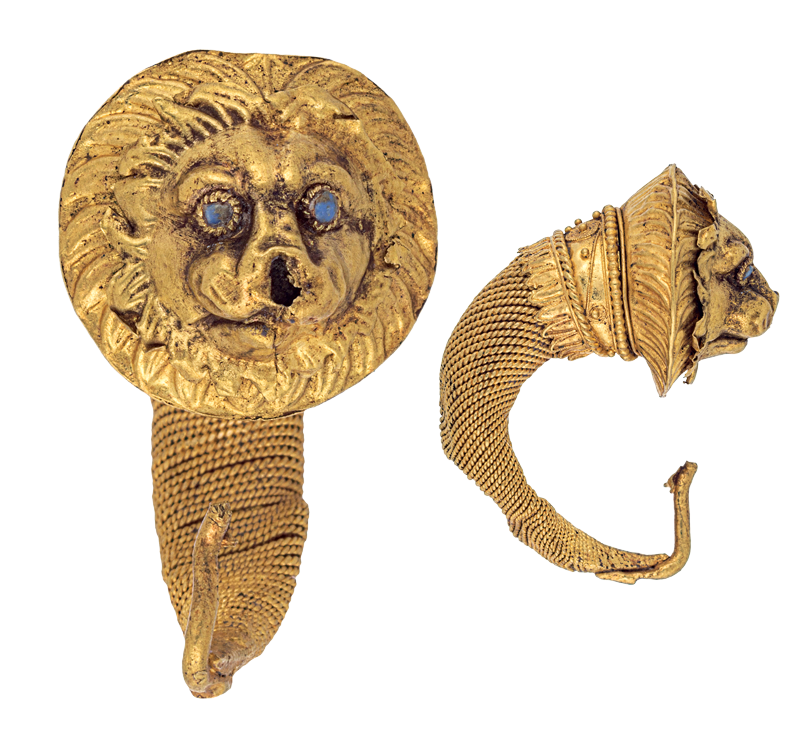
Coppia di orecchini
gold, filigree
height 2.3 cm
Rome, Museo Nazionale Etrusco di Villa Giulia, Castellani collection
The earrings are made of a foil tube covered by a coiled wire ending with an exceptional lion’s head. Their form and rich decoration are common both in the Etruscan context and in Ancient Greece; production was concentrated in the area of Taranto.
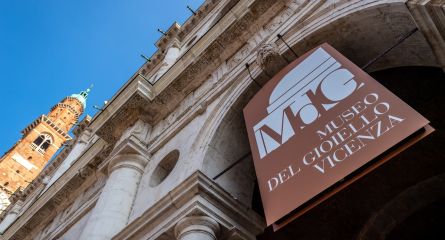
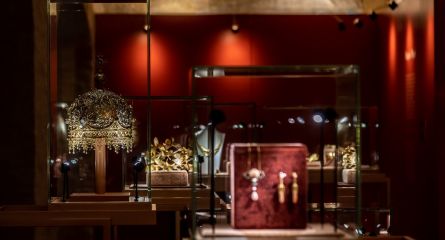
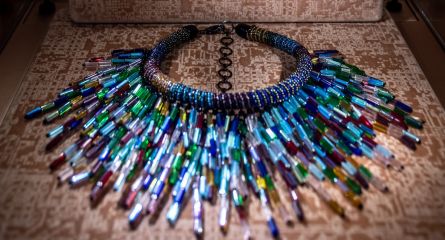

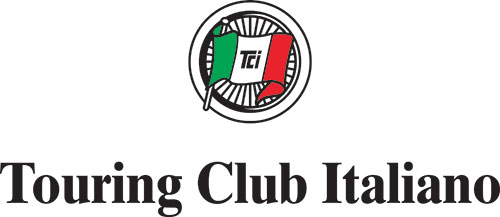






Follow us on social networks
Subscribe to the newsletter